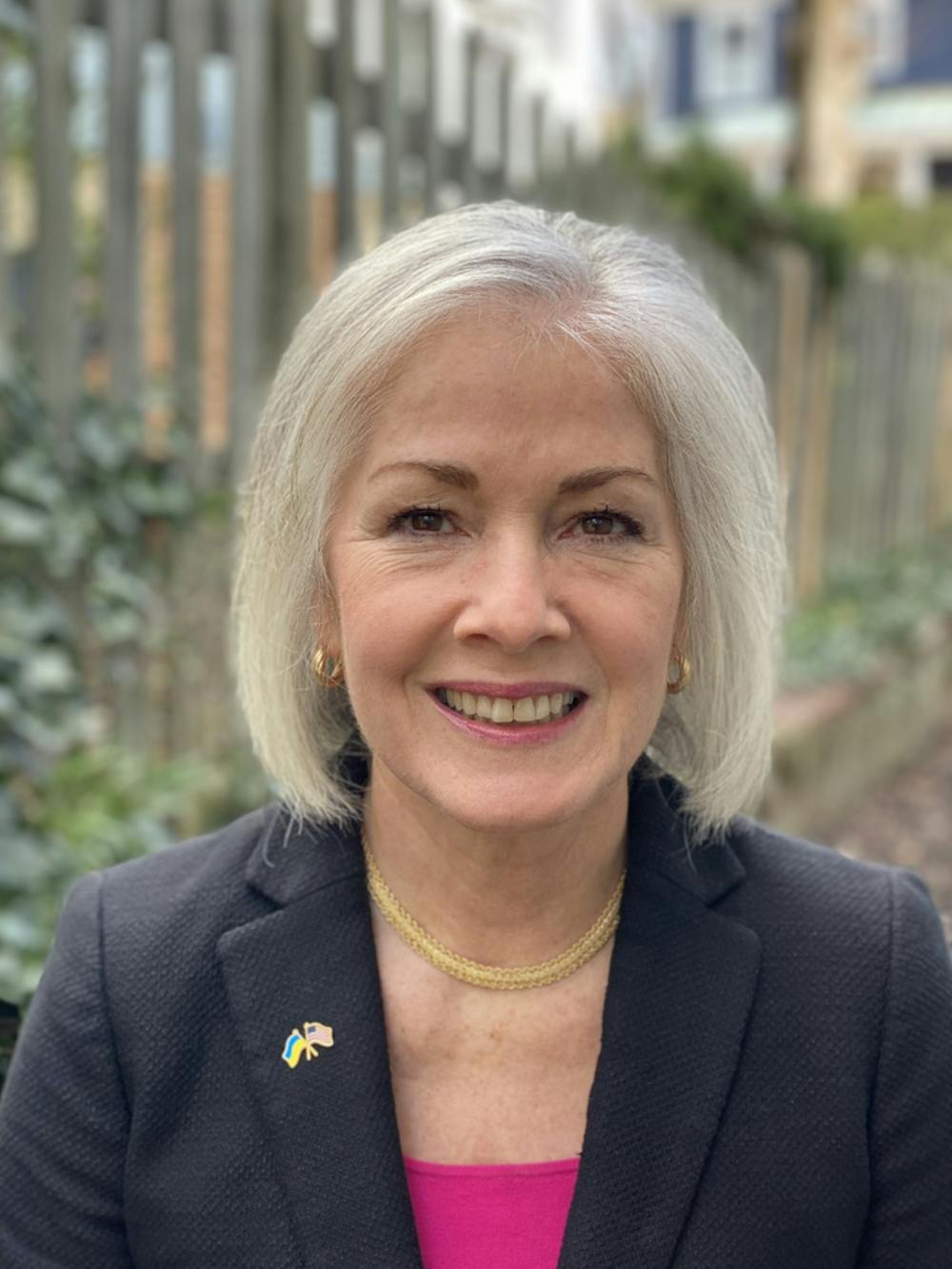Following the publication of her recent memoir, “Lessons From the Edge,” former ambassador to Ukraine Marie Yovanovitch ’80 spoke to the University community about her experience as a U.S. diplomat in Ukraine and the Eastern Bloc in a talk moderated by Professor of Sociology and International Affairs Kim Lane Scheppele.
During the panel, Yovanovitch explained that she did not see the current invasion coming but had observed stakes rising in the region.
Yovanovitch discussed what she described as Russian President Vladimir Putin’s attempts to “recreate a new Soviet” with the Russo-Georgian War in 2008 and the annexation of Crimea in 2014. Yovanovitch stated that “he’s gotten away with it [before]; he thought he’d get away with it [again].”
“Russia was successfully destabilizing and disorienting Ukraine, and I thought that was [going to be] enough,” Yovanovitch said at the talk. She further explained to the audience that “if you look over the years, [Putin] told us what he wanted.”
Yovanovitch said that when she was appointed ambassador in 2016, there were ongoing conflicts in the Donbas region, and a “desire to not escalate” tensions with Russia.
Both during the panel and in her memoir, she commended the strength of the Ukrainian people and President Volodymyr Zelensky’s leadership.
Yovanovitch also stated that the Biden administration is “supporting Ukraine within a very narrow lane and they are doing it very well.” She emphasized the need for NATO to provide as much support and equipment to Ukraine as possible.
The conversation then pivoted to discussion of Yovanovitch’s deposition in the first impeachment of former president Trump following the now infamous “perfect phone call,” in which Trump threatened to withhold Congress-approved funding from Ukraine in an effort to gather information against then presidential candidate Joe Biden.

Yovanovitch was called back to the U.S. three days after Zelensky’s election. She said that she had heard rumors that Rudy Giuliani, one of President Trump’s legal advisors and former New York City mayor, “had it out for [her].” She also expressed her disappointment in the State Department’s lack of support during the “smear campaign” against her.
Yovanovitch said that ambassadors “are used to getting criticized, but what was unusual was [it] came from the U.S.”
“He could have just fired me,” she said. “He didn’t have to run a disinformation campaign against me.”
She worried about ever being able to find employment again after her removal from Ukraine and subsequent testimony in the impeachment. Yovanovitch said she complied in testifying because it was her duty to the U.S. people.

During the talk, Yovanovitch also touched on what has sustained her personally through these last difficult years.
“I’d ask myself, what would my parents do?” Yovanovitch said. She explained that her parents, refugees from the Soviet Union and Nazi Germany, had instilled a deep need to give back in any way she could. She also discussed how profoundly the University’s motto “Princeton in the nation’s service” affected her time in the State Department and her decision to enter foreign service.
The Daily Princetonian previously sat down with Yovanovitch to discuss her recent memoir, advice for aspiring civil servants, and thoughts on the war in Ukraine.
The panel was held on April 12 at 6 p.m. in the Richardson Auditorium, and was co-sponsored by the Princeton School of Public and International Affairs and the Program in Russian, East European and Eurasian Studies as a part of the Walter E. Edge lecture series.
Jasmyn Dobson is a staff writer who often covers SPIA. She can be reached at jbednar@princeton.edu.








